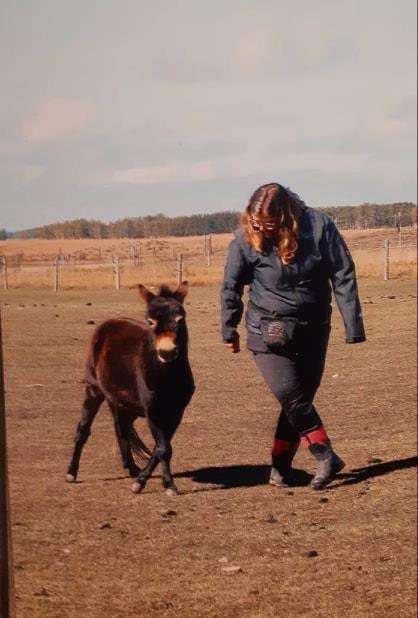Have you ever heard anyone say, “You can’t let the horse win?”
It’s such a prevalent idea in the horse world, that if things aren’t going well, you can’t quit, or you’ll have taught the horse that he can “win” and he’ll be worse next time.
But that sort of thinking, along with ideas like “being the alpha” or “showing him who’s boss” just set us up to be in conflict with our horse, and that’s such a shame.
It shouldn’t be “us versus them” – we should always be on the same team as our horse.
If we just change our mindset, and look at our horse as a teammate, someone who’s success will further our own success, imagine how much more quickly we can reach our goals.
When it’s not going well, instead of getting into conflict with our horse, we could think, “how can I help them understand?” We could change our approach, try something new.
Or, we could recognize that horses are allowed to have bad days just like we are, and if it’s not going well, maybe the best thing for everyone is to call it a day and try again tomorrow. Go back to something easy, or give up on formal training entirely and just spend some quite time together hand grazing or grooming or something else your horse enjoys, focusing on the relationship instead of the goals.
I get frustrated easily, so when it’s not going well and I can feel a fight coming on, I say out loud, “That’s not working is it! What can we do differently?” and it makes me stop thinking emotionally about “winning” and instead gets me back thinking like a teammate.
What tools do you use to make sure you’re there to help your horse understand, instead of make them do what you want?

When I am truly “present” with my horses and listening to them, they seem to understand almost everything I do and say. Just as I don’t always do what they ask me to do, they don’t always do what I ask, but my being present usually means we can have a conversation about it. Inserting pauses in those conversations can be very powerful. If I ask for something and then give the horse a chance to think about his response—what Kendra calls, giving the horse a choice—my horse will often respond in a way that makes us both happy.